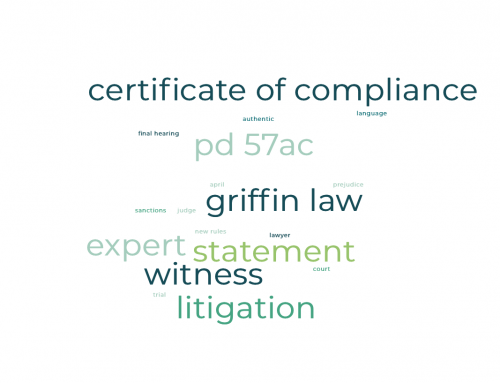THE EFFECT OF COVID-19 ON LANDLORD AND TENANT RESIDENTIAL POSSESSION CLAIMS
UPDATE:
The Coronavirus Act 2020 (Residential Tenancies: Protection from Eviction)(Amendment)(England) Regulations 2020 came into force on 29 August 2020. They have:
- Extended the provisions of Schedule 29 of The Coronavirus Act 2020 (which itself extended the notice periods in relation to possession proceedings for certain types of residential tenancies, with the aim of protecting tenants from eviction), from 30 September 2020 to 31 March 2021; and
- Save for in certain circumstances, increased the notice period that must be given in most types of notice seeking possession of residential properties in England from three to six months
The Coronavirus Act 2020 (
“the Act”) received Royal Assent on 25 March 2020 and came into force on 26 March 2020.
The provisions of the Act affect, amongst other things, the recovery of possession of residential premises let under assured and assured shorthold tenancies under the Housing Act 1988 (
“HA”).
In conjunction with the Act, certain new Practice Directions (
“PD”) and Civil Procedure Rules (
“CPR”) have also come into effect.
Most proceedings for possession brought under Part 55 CPR, and most proceedings seeking to enforce an order for possession by warrant or writ, have now been stayed until
20 September 2020.
A new PD will be in force from 20 September 2020, when the present stay is due to end, until
28 March 2021. This PD sets out the provisions for reactivation of stayed possession claims, as well as procedural changes applying to both existing claims and the issue of new claims.
Further protection for tenants before proceedings for possession can be brought.
In an attempt to protect residential tenants from eviction, notice periods which a landlord is required to give to a tenant before commencing a claim for possession have been extended.
For example, a landlord who wishes to serve upon a tenant a Notice Requiring Possession in accordance with Section 8 of the HA (rent arrears) is now required to give a tenant no less than
3 months notice of an intention to bring a claim for possession. Previously, the notice period was only 2 weeks.
A revised prescribed form of Section 8 Notice, setting out the above-detailed change, was published by the Ministry of Housing, Communities and Local Government on 28 March 2020. This revised form must be used in
all cases where a landlord seeks possession under Section 8 of the HA.
A Notice Requiring Possession under Section 21 of the Housing Act 1988 also now requires a tenant to be given 3 months notice of a landlord’s intention to commence a clam for possession of the property, where previously that notice period was only 2 months.
It should be noted that the increases in the length of notice periods to be given to tenants by landlords may, in future, be extended from 3 months to 6 months by regulations made under the Act.
The recent changes introduced by the Act, and the new PD and CPR, bring about a significant shift in the process by which a landlord can give notice of an intention to bring a claim for possession and, thereafter, seek possession of a residential property let under an assured or assured shorthold tenancy.
Furthermore, the manner in which such claims are dealt with by the courts has also changed quite dramatically. As was always the case, compliance with the relevant PD and CPR is crucial to the prospects of a landlord securing possession of a property.
Griffin Law is a dispute resolution firm comprising innovative, proactive, tenacious and commercially-minded lawyers. We pride ourselves on our close client relationships, which are uniquely enhanced by our transparent fee guarantee and a commitment to share the risks of litigation. If you have any specific questions regarding a dispute, please email justice@griffin.law or call 01732 52 59 23.
GRIFFIN LAW – TRANSPARENT FEES. TENACIOUS LAWYERS. TRUSTED PARTNERS.
Nothing in this document constitutes any form of legal advice upon which any person can place any form of reliance of any kind whatsoever. We expressly disclaim, and you hereby irrevocably agree to waive, all or any liability of any kind whatsoever, whether in contract, tort or otherwise, to you or any other person who may read or otherwise come to learn of anything covered or referred to in this document. In the event that you wish to take any action in connection with the subject matter of this document, you should obtain legal advice before doing so.
© Griffin Law Limited, 2020. All rights reserved.
Nothing in this document constitutes any form of legal advice upon which any person can place any form of reliance of any kind whatsoever. We expressly disclaim, and you hereby irrevocably agree to waive, all or any liability of any kind whatsoever, whether in contract, tort or otherwise, to you or any other person who may read or otherwise come to learn of anything covered or referred to in this document. In the event that you wish to take any action in connection with the subject matter of this document, you should obtain legal advice before doing so.





![The role of a sole director in a private limited company following Hashmi v Lorimer-Wing [2022] EWHC 191 (Ch) and Active Wear Limited [2022] EWHC 2340 (Ch).](https://www.griffin.law/wp-content/uploads/2022/03/GL-vert-onblue-500x383.png)
